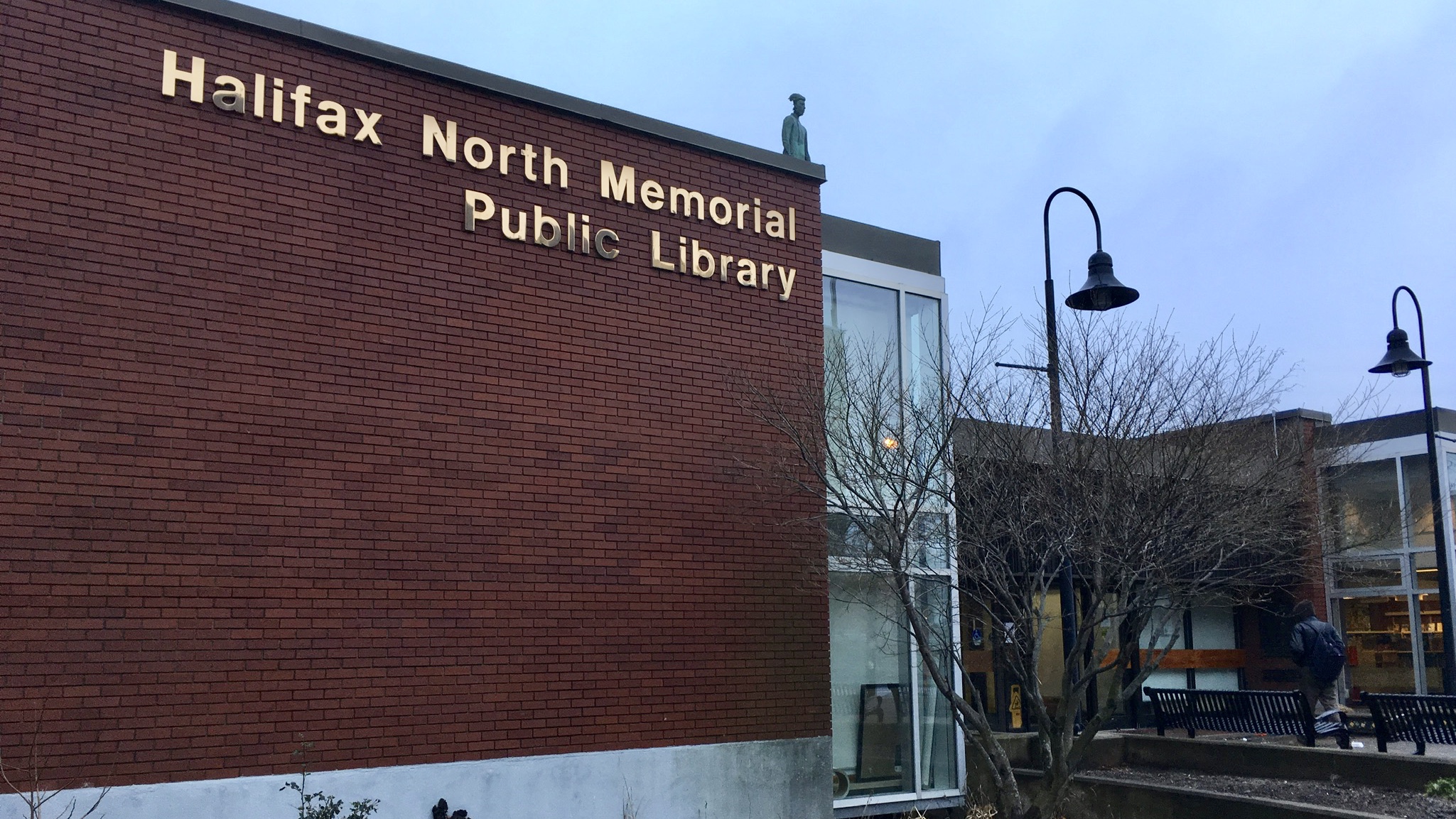Community
‘Revolution Time!’: Remembering the Black United Front and the meeting that launched it
‘People realized that we, as black people, could control what we did’

caption
The Halifax North Memorial Public Library, where Friday's event will be held.On Nov. 30, 1968, over 500 people crowded into the Halifax North Memorial Library on Gottingen Street, the largest political gathering of black Canadians up to that point.
This Friday, at 7 p.m., 50 years later on the same date and in the same library, the community will come together once again.
They are celebrating the anniversary of a meeting that led to the creation of the Black United Front — the only black organization in Halifax that focused exclusively on politics.
“The meeting needs to be marked for the very fact that it happened,” said Isaac Saney, the event’s organizer. Saney is a history professor at Dalhousie University and the secretary of the Dalhousie Black Faculty and Staff Caucus. Related stories
“This is a time to reflect on what was accomplished and what has not been accomplished.”
African-Nova Scotians are still facing issues like systemic racism, over-policing of their communities and disproportionate incarceration rates.
“It’s like we have to refight the same struggles again,” said Saney.
‘Revolution time!’
In 1968, Halifax was immersed in what Saney calls the “revolutionary rhythms” taking place around the world: anti-war actions and civil rights fights in the U.S., the assassination of Martin Luther King Jr., and apartheid in South Africa.
The late Burnley (Rocky) Jones brought those issues home to Halifax. A civil rights advocate who grew up in Truro, Jones was active in the U.S. civil rights movement, before turning his attention back to Nova Scotia.
In October 1968, Jones attended the Black Writers Congress in Montreal. There he met Stokely Carmichael, the honorary prime minister of the Black Panther Party. Carmichael visited Halifax after the Congress.
“To have him come to Halifax and be staying with me, at that time maybe the best-known Black militant in Canada … you know it is revolution time!” wrote Jones in his autobiography, Burnley ‘Rocky’ Jones: Revolutionary, published in 2013.
After Carmichael left Halifax, other Black Panthers arrived. They spoke with the black community about the problems they faced. Africville was being razed to the ground, many restaurants and bars still wouldn’t serve black people, and a new report by the Negro Employment Interim Committee found that African-Nova Scotians faced blatant discrimination in the job market.
In the report, an 18-year-old man said an employer told him there were no jobs available, but hired two of his white friends the same day.
“You know, I’m beginning to think there’s something in that bloodletting that’s going on in the States,” said the man.
With these issues at the forefront, the visiting Black Panthers suggested a black family meeting be held.
The meeting
“I’ll never forget that night; it was one of the most difficult nights I have ever gone through,” wrote Jones.
He said white women who married black men were turned away at the library’s doors. It was a black family meeting, for family only, he wrote.
Frank Boyd, who later became director of the Black Cultural Centre, was at the meeting. Writing about it his 1985 essay, The Politics of the Minority Game: The Rise and Fall of the Black United Front, he said he, “like many others, was seated on the floor of a room full to overcrowding, waiting for what everybody had come to see and hear — the Black Panthers speak.”
Donald Oliver, the first black Canadian to hold a Senate seat, recalls anxiety permeating the event, both from white media outside and black people inside.
“When you are white and you want to control a minority group, you divide them and conquer them and step all over them, and keep them divided so they can’t get together,” he said in an interview with The Signal.
Suddenly though, with this one meeting, black people were organizing in a way they hadn’t before.
The gathering left Oliver, who can’t make the anniversary, feeling “determined to go out and fight for equality and human rights, inclusion, and that’s what I did for 50 years of my life.”
Opposing outcomes
Following the meeting, BUF formed and was active until underfunding shut it down in 1996.
However, opinions differ as to what the family meeting decided BUF was supposed to be.
Saney said radical thinkers, like Jones, wanted BUF be an independent umbrella group to advocate for all black organizations and report back to future family meetings. Others believe BUF was always meant to be what it became, a stand-alone organization of black community representatives, dependent on state funding.
Boyd was critical of the meeting’s outcome, writing, “we chose to seek black power. Instead, we lost our liberty.”
50 years later
While aware that BUF wasn’t all things to all people, Saney said the black community needs another independent political organization, to work towards self-determination for African-Nova Scotians.
“What has changed in the 50 years, I think, is the consciousness of people, awareness of their rights,” he said.
During that first meeting, Jones wrote “for the first time, even in that meeting with all that dissension, people realized that we as Black people could control what we did.”
The anniversary will centre around the same ideals, with a discussion and look back at what’s been achieved in black self-determination — and a look forward at what can be.

